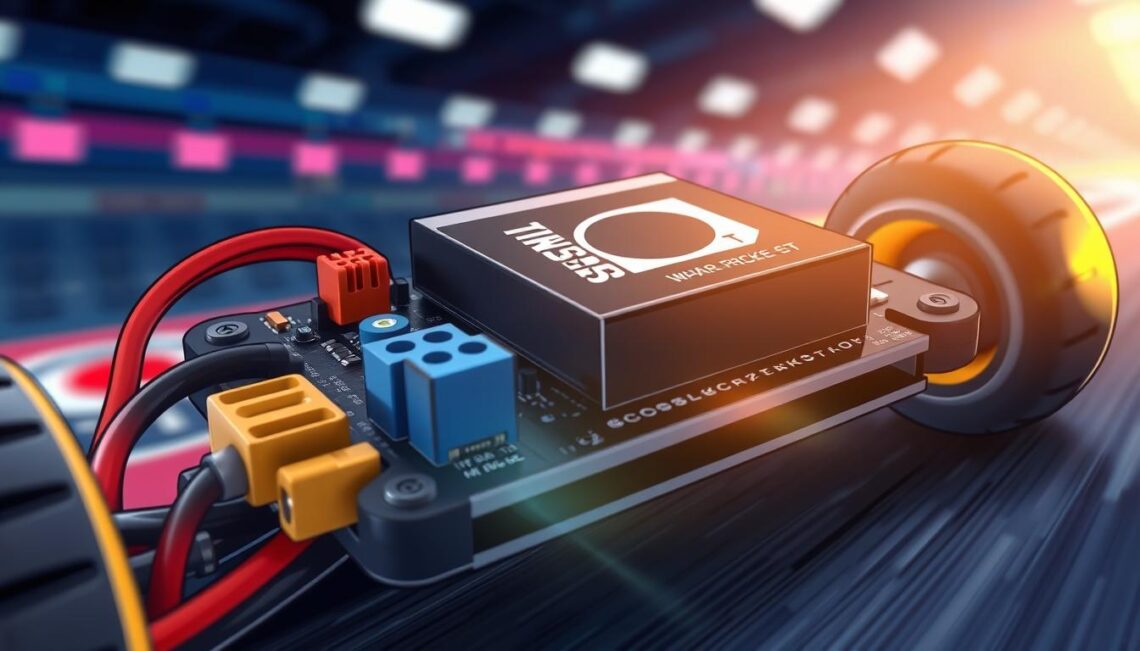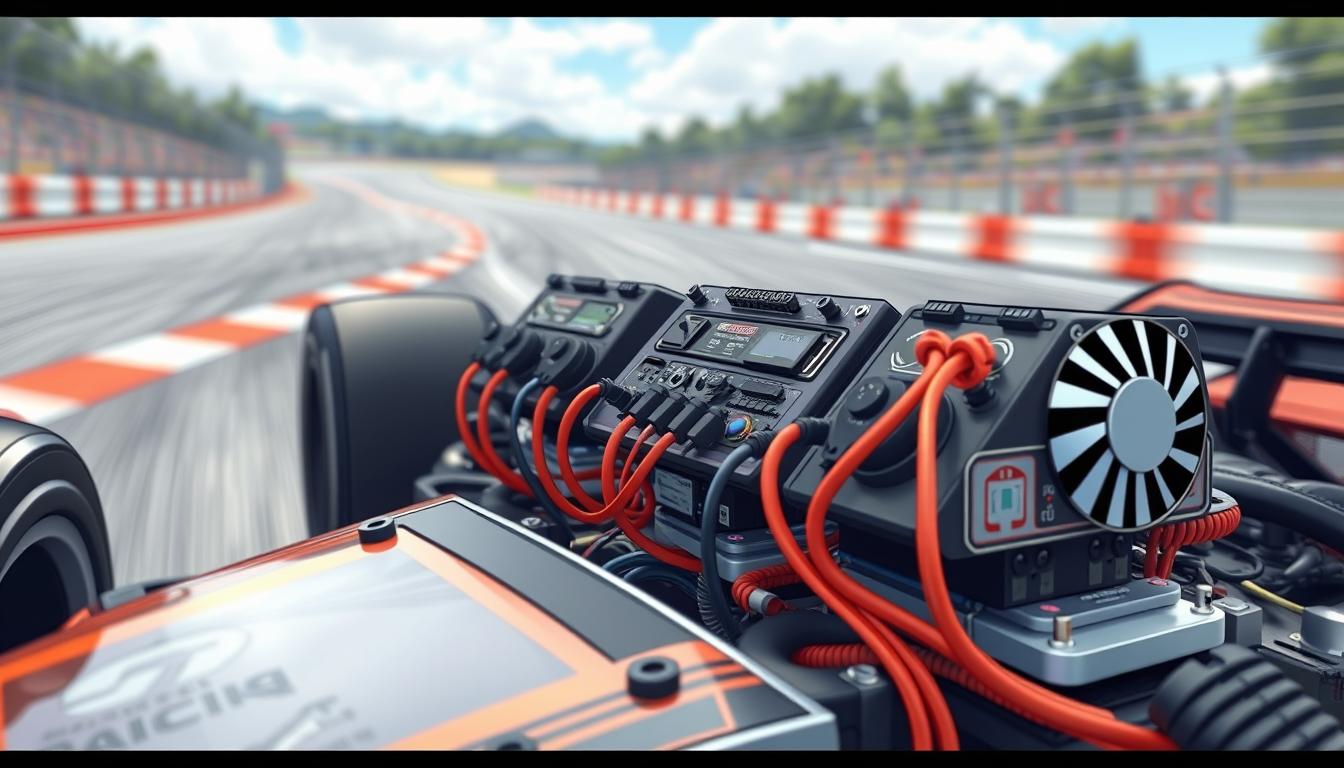In the world of RC racing, Electronic Speed Controllers (ESCs) play a pivotal role in determining a vehicle’s performance. These devices are essential for converting signals from the radio transmitter into the appropriate power levels for the motor, allowing RC vehicles to achieve optimal speed control. By providing precise adjustments for acceleration, deceleration, and direction, ESCs enhance both efficiency and speed during races.
For racers looking to improve lap times and competitive outcomes, understanding ESC technology is crucial. The effectiveness of these controllers impacts not just the driving experience but the overall performance during critical moments on the track.
Understanding Electronic Speed Controllers (ESCs)
Electronic Speed Controllers, often abbreviated as ESCs, play a crucial role in the performance of RC vehicles. Their primary purpose is to regulate the speed and direction of RC motors, allowing for a smooth and responsive driving experience. Understanding the definition of ESCs and how they function can significantly enhance one’s knowledge of RC technology.
What is an Electronic Speed Controller?
The definition of ESCs encompasses devices that manage the power delivered to the motor based on the throttle input from the user. They serve as a bridge between the battery and the RC motors, ensuring that the right amount of electrical energy is sent to the motor for optimal performance. ESCs also incorporate features such as braking and reverse functions, which are essential for a comprehensive driving experience.
How ESCs Work in RC Vehicles
The function of ESCs in RC vehicles is to translate the commands given by the transmitter into actions performed by the motors. When the user pushes the throttle, the ESC interprets this signal and adjusts the voltage accordingly. It controls both acceleration and deceleration by fine-tuning the energy flow to the motor. This process allows for precise handling, essential for racing and maneuvering through obstacles.
Types of Electronic Speed Controllers
There are various types of electronic speed controllers available on the market, each tailored for specific applications in RC vehicles. Key categories include:
- Brushed ESCs: Designed for traditional brushed motors, these controllers are straightforward and often more economical.
- Brushless ESCs: Used with brushless RC motors, these ESCs handle higher efficiency and provide enhanced performance.
- Race ESCs: These are specialized for competitive racing, offering advanced features like programmability and customizable settings.

The Role of Electronic Speed Controllers in RC Racing
Electronic Speed Controllers (ESCs) play an essential role in RC racing, particularly in achieving remarkable speed enhancement and maintaining efficiency in RC racing. These devices manage the power delivered to the electric motor, ensuring that RC vehicles operate at their best. Understanding how ESCs contribute to performance can significantly impact a racer’s success on the track.
Enhancing Speed and Efficiency
One of the primary functions of an ESC is to optimize speed enhancement. By providing precise control over the motor’s power, ESCs enable racers to achieve maximum acceleration and top speeds. The efficiency in RC racing is further improved through advanced algorithms that manage energy usage. As a result, vehicles can perform better at various speeds without compromising battery life, leading to longer race times.
Precision Control for Optimized Performance
Precision control in RC vehicles is another critical aspect of ESCs. These controllers allow for accurate adjustments in throttle response, improving handling and stability. Racers can fine-tune their vehicles according to individual preferences and track conditions. This adaptability helps in navigating curves and obstacles effectively, further boosting overall performance on race day.

| Feature | Impact on Performance |
|---|---|
| Power Management | Ensures optimal energy use for speed enhancement |
| Throttle Sensitivity | Allows for fine-tuned control and responsiveness |
| Heat Dissipation | Prevents overheating, maintaining efficiency in RC racing |
| Custom Settings | Enables tailored performance for different tracks |
With continuous advancements in technology, the ESC role in RC racing becomes increasingly vital. Understanding their functionality provides racers a competitive edge by maximizing speed and ensuring efficient operation during races.
Key Features of Electronic Speed Controllers
Electronic Speed Controllers (ESCs) offer a variety of features that significantly enhance their performance and adaptability in RC racing. Understanding these features provides insights into how these devices impact the overall efficiency and enjoyment of the racing experience.
Programmability and Customization
One of the standout features of ESCs is their programmability. Programmable ESCs allow users to tailor settings according to specific preferences and racing conditions. Adjustable parameters such as throttle response, braking force, and timing can help drivers harness the full potential of their RC vehicles. This customization enhances the driving experience by enabling competitors to optimize their setups to gain a competitive edge.
Thermal Management and Protection Features
Effective thermal management in RC racing is vital for maintaining the optimal performance of both the motor and the ESC. Many modern ESCs come equipped with advanced thermal management features that monitor temperature levels and protect the system from overheating. These protective measures include automatic thermal shutdown and reduced output power when temperatures rise beyond a safe threshold, ensuring reliable performance during intense races.
Integration with Brushless Motors
Brushless motor compatibility stands out as another critical feature of ESCs. Most brushless motors require specifically designed ESCs to function correctly, which means selecting the right ESC is crucial for achieving desired performance. A well-matched ESC enhances efficiency and responsiveness, enabling drivers to enjoy smoother acceleration and greater control over their vehicles.
| Feature | Description | Benefits |
|---|---|---|
| Programmability | Customizable settings for throttle, braking, and timing | Enhanced control for individual racing styles |
| Thermal Management | Monitors temperatures with auto shut-off features | Prevents overheating, ensuring reliability |
| Brushless Motor Compatibility | Designed to work with brushless motors | Improved efficiency and performance during races |
Choosing the Right ESC for Your RC Setup
When selecting ESCs for RC cars, several critical factors come into play to ensure optimal performance on the track. First and foremost, ESC compatibility with your motor is essential. Different motors have varying voltage and current requirements, so pairing them with the right ESC will maximize efficiency and power output.
Additionally, consider the vehicle’s weight and design as these elements significantly affect the ESC’s performance. A lightweight model may benefit from a lower-rated ESC, while heavier setups often require more robust units capable of handling increased demands. Another important aspect is your intended racing style; whether you’re into speed runs or technical courses, these preferences should influence your choice of ESC.
Moreover, take time to evaluate the features offered by different ESC models. Programmability and protection systems are crucial features that can enhance performance during races. With technology evolving rapidly, staying informed about the latest advancements in ESC capabilities can provide a competitive edge, ensuring you achieve the best results with your RC vehicle.

